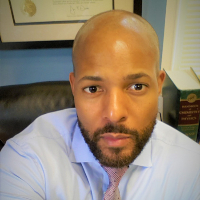Carrollton Felony Lawyer, Georgia
Sponsored Law Firm
-
 x
x

Click For More Info:
-
The Ford Law Firm
Assault, DUI, Firearms, Murder, more... Expect Results, Not Excuses
I understand how the system works. Potentially, even getting the case dismissed before it is ever filed against you…it is important to act quickly. Call now at the number below.
800-298-1630  Thomas Ford Alpharetta, GA
Thomas Ford Alpharetta, GAAttorney At Law - GA, 1996
University of Florida, J.D. - 1995
 State & Federal Law
State & Federal LawCriminal cases are filed in both State and Federal Courts. Click for Info.
Cory Yager
Cory Yager is a lawyer in Atlanta who focuses on Juvenile Crimes cases. He has tried cases involving expungement, traffic violations, solicitation, DU... (more)
M. Byron Morgan
✓ VERIFIEDByron has been practicing criminal defense and family law for over 28 years. Look at his website at www.byronthelawyer.com. Byron constantly has cli... (more)
Quinn Johnson
✓ VERIFIEDQuinn Johnson is the principle of The QUINN JOHNSON LAW FIRM, P.C. Our firm has earned a reputation of getting results on behalf of our clients thr... (more)
Thomas Ford
✓ VERIFIEDFREE CONSULTATION
CONTACTFREE CONSULTATION
CONTACTFREE CONSULTATION
CONTACT

 Thomas Ford Alpharetta, GA
Thomas Ford Alpharetta, GA State & Federal Law
State & Federal Law





